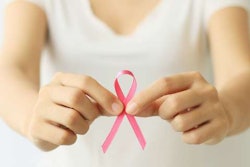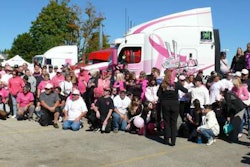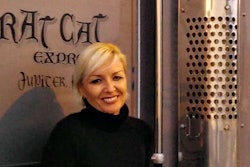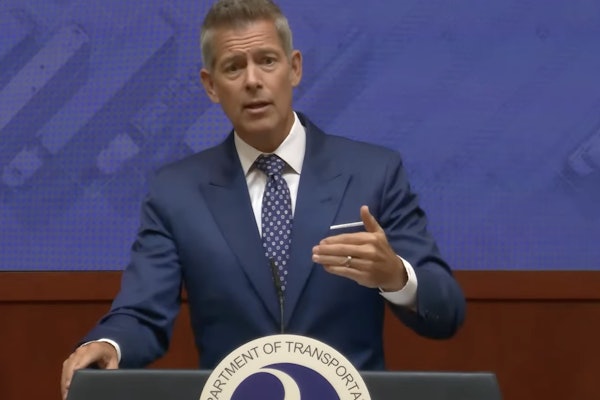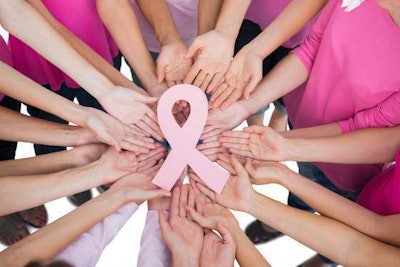
What are some general tips you have for women about breast cancer?
Parker: I gave a talk titled “Be PINK.” Basically we tell patients you can be Proactive, Inquisitive, Nutritious and Knowledgable. Proactive meaning going and getting your annual mammogram. We know that’s not always fun and people don’t really always enjoy doing that but get that annual mammogram for your yearly screening, so if something is caught. The idea is to catch it early. We know mammograms do help us catch things early.
The other thing we talk about is just being proactive and knowing your own breast health. We have a lot of patients that say, ‘Well I do a breast exam but I don’t know what I’m feeling for or everything feels abnormal, I don’t know.’ The way we guide patients is know what your normal is. Know what your breasts look like. What’s normal for you? If your nipple has always been inverted it’s good to know that versus if it never has and all of a sudden it is – that’s one of the things we tell you to have a look out for. If you feel a mass that’s different, that hasn’t been there, definitely get that checked out. If your nipple has changed at all, if you have any nipple discharge, especially if it’s bloody is something you would want to let someone know about.
Any skin changes or different rashes or anything that you think is different, it’s always good to let someone know. Because what’s the worst thing? Someone might say ‘Oh well, I didn’t want to say anything.’ No, let someone know – that’s the best news I can give someone, that everything is fine. I think some patients feel like ‘Oh, it’s nothing, I’ll just ignore it.’ But I always say get it checked out. The best thing is we can tell you is it’s fine and you don’t have to worry about anything.
Are mammograms still considered the go-to for early detection?
Parker: They are. There’s a lot of controversy, you can Google it and get different organizations that recommend different ages to start screening but if you look at the standard guidelines they recommend for the average woman to start at age 40 and get a mammogram early. That still is something that we would recommend.
If a woman hasn’t had a mammogram screening before, what should she expect to experience during that appointment?
Parker: Most places where you go for your mammogram, it’s very patient driven. You feel health, so why go do a test that someone might say you have something wrong? We hear that a lot. Most places are very respectful. Most places have them in a gown where they’re separated. They aren’t in a waiting area in a gown; you’re kind of in the back and it’s a private area. Then when you go for the mammogram, they take two pictures of each breast. The point of a mammogram is you do have to do some compression to get a good picture. They take two pictures of each breast in different directions.
Most of the time if you’re coming in for a screening mammogram that means you are asymptomatic. You have no complaints, and so they’re going to do a mammogram so you’ll have the images done and most of the time in that situation you’ll get a letter in the mail and it’ll say you’re fine or sometimes it may say you need to come back for some more imaging. Overall, I think it’s always very patient driven. They want to be very respectful of the patient and the techs at those places are. We know there’s anxiety with it so we want to make you as comfortable as possible.
Is there a certain demographic of women who are at increased risk for breast cancer?
Parker: The other thing with being knowledgeable is knowing your personal risk. Ask, be inquisitive: What’s your family history? We get a number of patients who may say they haven’t talked about that much, but I think the younger generations are more open and kind of know more of what’s happening in your family if someone is sick and what actually is going on. We recommend that you ask. Ask your parents and your relatives, “Who has had breast cancer or any other cancers?” Because it’s not just breasts. Are there other cancers that run in the family – ovarian, colon, thyroid, pancreas, gastric cancers – that can put you at higher risk because of a genetic predisposition?
If you’ve had family members with breast cancer or you’ve had a personal history of breast cancer, there’s increased risk. Most of the time the majority of cancers are sporadic, meaning there is no hereditary component. It’s just getting your mammogram and knowing your history, and if you know you’re at increased risk we have things we can do to help detection. We can image more frequently, some patients may be candidates for prophylactic surgery if it’s indicated. In regards to patients that are at increased risk, looking at your family history can help you identify your personal risk.
Because of the nature of trucking, some rivers may not be able to get to their doctor’s office on a regular basis. What would be your advice to them considering the work environment they’re in where they’re always on the go?
Parker: It’s that one a day a year that if you could think ahead and put it on your calendar and it’s the one thing you do and then you check it off and move on. I think it’s just trying to make it a priority and that is a tough job and you want to stay healthy and it can be easy to put your health aside. Do what you can to make it a priority. The thing about mammograms is they can scheduled and if you plan far enough in advance you can try to get it on a day and a time that work for you.
How can women decrease their risk?
Parker: Your average woman is at increased risk just by being female. We know that diet and lifestyle do increase your risk for breast cancer. Being overweight not only increases your risk for diabetes, high blood pressure and cholesterol but for breast cancer as well. Especially in a job where you are stationary for long periods of time, it can be hard. So what we do recommend is trying to be healthy, eating a balanced diet, trying to be active because it has been associated with decreasing your risk for breast cancer and other cancers as well. You also feel better over all. Everything in moderation: Not smoking, minimal alcohol intake, being active and healthy overall are good things for your health and you’re also decreasing your risk for cancers. If you’re in a truck for a long period of time, try to grab some apples and carrots and healthier snacks. Trying to just have a more healthy lifestyle helps you all around.




